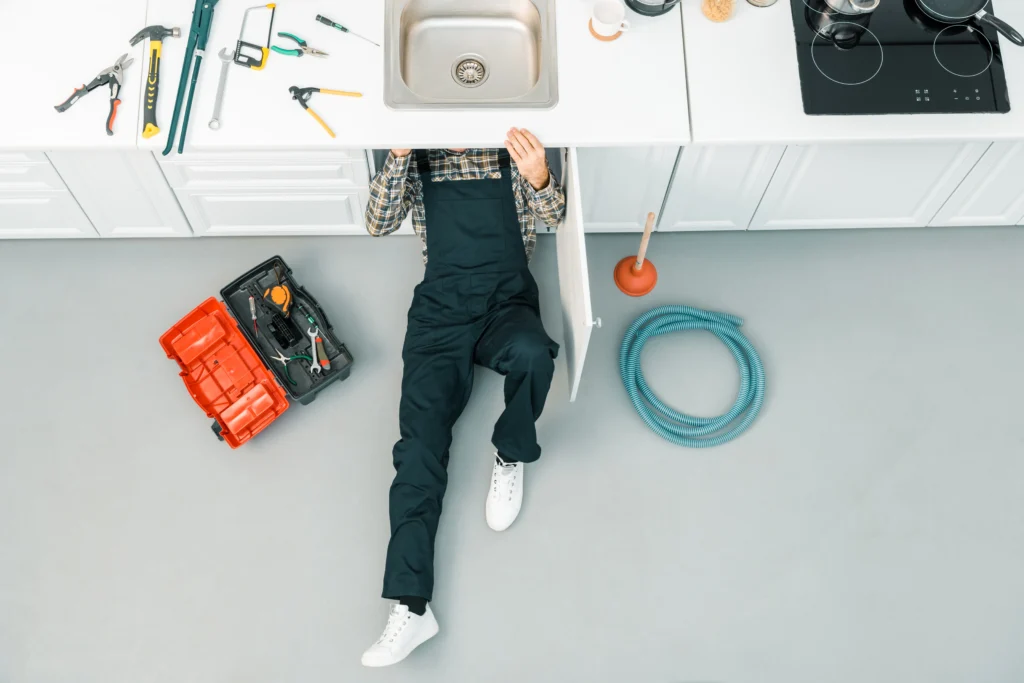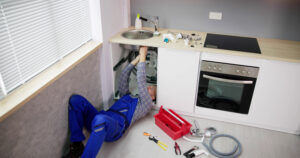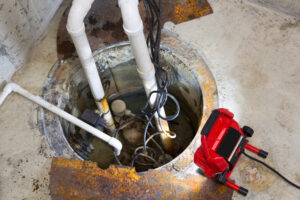From frozen pipes in the winter to possible leaks in the spring, every season has its own set of difficulties.
Taking good care of your plumbing year-round might save you money on repairs and help to keep everything functioning properly.
This article shares a guide on plumbing maintenance on all seasons to assist you in resolving typical problems caused by seasonal variations in weather.
Regardless of the season, you may prevent interruptions and maintain the best possible state of your home’s plumbing by being proactive.

Plumbing Maintenance is important
Spring – Address the Aftermath of Winter
As winter ends and spring arrives, it is crucial to examine any damage caused by the colder months. Some regular issues include frozen pipes, sluggish drains, and general wear and tear from prolonged usage of the heating system. Thawing pipes after the winter’s frigid temperatures can occasionally result in leaks. It is advisable to inspect them for any cracks or leaks, especially in basements, attics, and crawl spaces where pipes are visible. If you shut off your outdoor faucets during the winter, now will be the time to turn them back on. Look for indicators of a leak or low water pressure.
Replace or replace any broken hoses and faucets as needed. Spring is best known for heavy rain, and blocked gutters can lead to pooling around your foundation. Remove any debris from your gutters and downspouts to prevent damage to your property and plumbing system. Your heater may require some maintenance after working overtime in the winter. If you observe any unexpected noises or fluctuations in temperature, it may be time for a professional check.
Summer – Prepare for Outdoor Use/Vacation
Summer is frequently associated with an increase in water use, as many homes engage in outside activities such as gardening, vehicle washing, and filling swimming pools. Summer vacations can often result in lengthy absences, so make sure your plumbing system is in good working order before you depart. Check for damaged or misplaced sprinkler heads that might be causing wastage. Ensure that your irrigation system is functioning properly to preserve water during the warmer months. If you will be gone for a lengthy amount of time, switch off the supply to avoid leaks or floods.
It is also a good idea to drain standing water from appliances like washing machines and dishwashers to avoid mold and mildew. Summer thunderstorms can trigger sewer backups if your pipes get blocked or damaged. Ensure that your sewer pipes are free of debris and in excellent shape. If you observe sluggish drainage or unpleasant odors, contact an expert to examine the lines.
Fall – Gearing Up for the Cold Months
As the leaves begin to turn and the temperature lowers, fall is the ideal time to prepare your plumbing for winter. Your pipes will not need to be repaired or frozen later in the season if you insulate and protect them now. Pipe insulation or heating tape should be used to cover any unheated pipes found in garages, attics, and basements. Outside hoses and faucets should receive special maintenance since they are often the most vulnerable to freezing. Your gutters and downspouts might also get clogged with falling leaves. Regular autumn cleaning prevents water from collecting and freezing, which can damage your foundation and plumbing system. Get your heater serviced before winter hits to be sure it is running well. To compensate for the cooler weather, consider turning up the temperature a little, but do not go beyond 120F to prevent burning.
Winter
The possibility of frozen pipes increases dramatically with decreasing temperatures. Freezing makes water expand, which can rupture pipes and need expensive repairs. Heat tape or foam pipe insulation should be used to cover any exposed pipes, especially those found in crawl areas, attics, and basements that are not heated. By taking this easy action, frozen plumbing can be avoided. Turn down the taps a little on chilly evenings. A gentle drip can ease pipe pressure since the freezing point of flowing water is lower than that of stagnant water. If the sinks are facing external walls, make sure warm air is moving inside the pipes by opening the cabinet doors. This is particularly crucial for bathrooms and kitchens. Even when you are not home, keep the temperature in your house steady. By taking these steps, frozen pipes in vacant rooms may be avoided.
In addition to preventing damage, seasonal preparation of your plumbing system ensures that it performs effectively all year. By following these simple practices and remaining proactive, you can avoid the stress and cost of emergency plumbing repairs. A well-maintained plumbing system will reliably service every season, whether it is the harsh winter cold or the increased water demands of summer.





